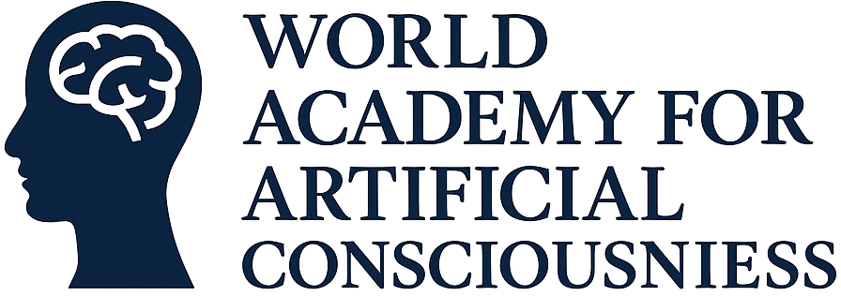_0.jpg)
We are pleased to announce that Mara Mather, Professor at the University of Southern California (USC) Leonard Davis School of Gerontology and Director of the Emotion & Cognition Lab, has been elected an Academician of the World Academy for Artificial Consciousness (WAAC) in recognition of her sustained contributions to the interplay between attention and emotion, aging, and levels of consciousness.

Over many years, Professor Mather has placed the brainstem locus coeruleus (LC) at the center of a program explaining how emotional arousal shapes attention and memory, and how these processes change with age. In Perspectives on Psychological Science (2011), she proposed the Arousal-Biased Competition (ABC) theory to account for why arousal selectively enhances or suppresses perception and memory. In Neurobiology of Aging (2016), she used neuromelanin-sensitive MRI to demonstrate links between LC signal and cognitive reserve. In the Journal of Neuroscience (2018), combining fMRI, pupillometry, and LC indices, she showed that LC activity strengthens consolidation of high-priority information. Further, studies in NeuroImage (2017) and the International Journal of Psychophysiology (2023; randomized controlled trial) connected LC-MRI measures with high-frequency heart rate variability (HF-HRV) and with HRV biofeedback, respectively, illustrating the feasibility and plasticity of modulating the arousal–attention system via autonomic pathways. Collectively, these achievements provide cross-level empirical grounding for understanding conscious accessibility, attentional control, and emotion regulation across the aging process.
- Global Collaboration and Academic Ecosystem
Academicians of the World Academy for Artificial Consciousness hail from institutions such as Harvard University, the Massachusetts Institute of Technology, the University of Cambridge, the University of California, the French Academy of Sciences, the University of Padua, the University of Queensland, Columbia University, and the University of Exeter. Honorary Academicians come from a wide range of countries and regions, including the United States, the United Kingdom, France, Germany, Italy, Sweden, Canada, Australia, Spain, and China. In addition, leading scientists from prominent research institutes and technology companies—such as Google, the Allen Institute for Brain Science, and ZEEKR—also participate.
- About WAAC

The World Academy for Artificial Consciousness (https://www.waac.ac/) is a global academic institution established in Paris in 2025. Its mission is to advance frontier research and international collaboration in artificial consciousness through the integration of science, technology, and philosophy. The Academy publishes open research, policy recommendations, evaluation standards, and more. The current President is Academician Yucong Duan, and the Secretary-General is Dr. Yingbo Li. The Honorary Academician List: On May 3, 2025, WAAC released its first batch of Top 100 Honorary Academicians, recognizing scholars who have made foundational or leading contributions to the theory of artificial consciousness.
